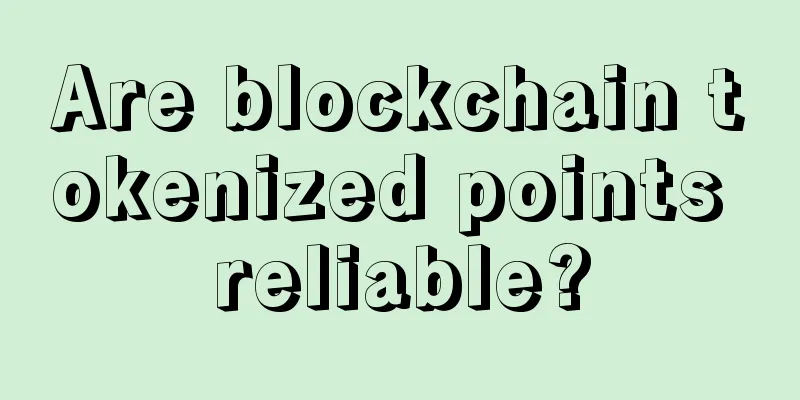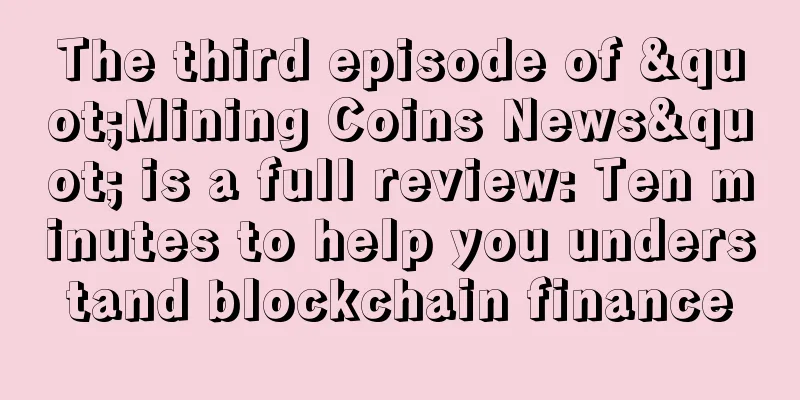Are blockchain tokenized points reliable?

|
Do you have a lot of points? In daily life, have you ever encountered the following situation: when you go to a shopping mall, supermarket, restaurant, etc. to settle your consumption, the teller will often ask: Do you have a membership card? Do you need points? You can enjoy discounts by applying for a membership points card, etc. So, you apply for many memberships and accumulate a lot of points that you will almost never redeem. Points are an important means for merchants to increase user stickiness. However, for users, unless they are particularly fond of a store, many points are usually not very useful. Generally speaking, there are the following problems with unused points: there is a high consumption threshold for using points, and even if there are some reserves, the points cannot be used if the corresponding standards are not met; points are scattered among different brands, and points between different brands cannot be exchanged; it takes too long to use points to claim rewards, etc. However, as blockchain became popular, some people proposed the concept of a tokenized points system. The specific operation of this system is that the points of each brand are tokens on the points chain. As a result, all points can be freely exchanged on decentralized exchanges and between merchants, and the points exchange price is determined by the market. Is this practice legal and compliant? What compliance risks are there? Tokenized points are not simpleIf you want to develop tokenized points, you need to first understand what points are? Points represent certain rights and interests that users enjoy in a specific merchant and are virtual property held by the user personally. Article 127 of the General Provisions of the Civil Law of the People's Republic of my country stipulates that if the law has provisions on the protection of data and network virtual property, such provisions shall be followed. Therefore, some people believe that since online virtual property is protected by law, online consumption points belong to the user's virtual property. For this property right protected by law, users can of course join the tokenized points system and dispose of the points in their various membership cards, including but not limited to commodity exchange and mutual transactions between different points. We believe that the above view is biased. If the law has provisions for the protection of data and network virtual property, it shall be followed. It does not mean that all data and network virtual property are included in the civil law protection system. The high generality of the general principles of civil law declares the legal significance of data and network virtual property. In practice, what kind of data and network virtual property are protected, how to use and protect them, etc., still need to go into specific situations and analyze them separately. As far as the tokenized points system we know about is concerned, it creates a kind of points that can be used universally among merchants on the chain. When the barriers between the points systems of different merchants are broken, the points between merchants can be freely exchanged and have a specific price; when there are enough merchants on the chain and the volume is large enough, this kind of universal points actually realizes the functions that should be realized by currency, such as payment and value measurement. At this time, points have become virtual currency. As early as 2003, Article 20 of the Law of the People's Bank of my country stipulated that no unit or individual may print or sell token tickets to replace the circulation of RMB in the market. In other words, the development and conception of using points to complete the currency payment function in disguised form still needs to be cautious. In addition, during the operation of the tokenized points system, all points holders hold a certain number of standardized equity shares through commodity purchases or other investment behaviors, and attempt to redeem them, or make profits through the operation of on-chain shops. At this time, the points held by users have the attributes of "securities". The issuance and operation of such products with financial product attributes will be strictly regulated. How to play pointsAccording to our observation, the most active and best-played industry is the gaming industry. All kinds of heroes and equipment in the game require players to exchange them with points or cash. For this reason, the Ministry of Culture and the Ministry of Commerce have issued a special "Notice on Strengthening the Management of Virtual Currency in Online Games". The notice states that online game virtual currency is issued by online game operating companies, and game users purchase it directly or indirectly using legal currency at a certain ratio. It exists outside the game program, is stored in the form of electromagnetic records on the server provided by the online game operating company, and is a virtual exchange tool expressed in specific digital units. We can see that the technical properties of points are actually very similar to those of online game virtual currency. The above notice requires that the use of online game virtual currency is limited to exchanging for virtual services provided by the issuing company itself, and cannot be used for payment. In this regard, we believe that points should also refer to the above rules and be limited to "internal circulation". In addition, we found a speech by Wang Xin, Director of the Currency, Gold and Silver Bureau of the People's Bank of China in 2018, titled "Strengthening Virtual Currency Supervision and Firmly Safeguarding the State's Right to Issue Currency". He believed that "Internet points have certain reasonable factors to enhance customer stickiness", but "there are some cross-platform, cross-industry, generally recognized and widely used Internet points products in society. If they are allowed to develop, they will have a significant impact on the circulation order of the RMB". In this regard, in order to safeguard the state's right to issue currency, points management must adhere to three bottom lines: First, it is forbidden to peg to the RMB, and two-way exchange with the RMB is absolutely prohibited; Second, control the scope of use. Internet credits must be used within the platform. They cannot be used between different legal entities participating in transactions on some platforms, and cannot be transferred between consumers. The third is to limit the income from holding, and no interest can be attached to the virtual currency itself. Other issuesThe red lines that may be touched by the operation of points include not only the above points. In addition, we also remind you of a few common risks for your reference: The "Interim Provisions on Prohibition of Commercial Bribery" issued by the State Administration for Industry and Commerce stipulates that business operators shall not use money or other means to bribe in the sale or purchase of goods. Points can be classified as "money or other means". In this case, if there is no reasonable way to record the issuance of points, there will be a risk of violation. In addition, in real life, it is common to use the name of points to conduct online pyramid schemes. The common profit model is that in addition to obtaining consumption points from one's own consumption, they also come from the consumption rewards of developing downlines. In this regard, Article 224-1 of my country's Criminal Law stipulates that if anyone organizes or leads a pyramid scheme in the name of selling goods, providing services, etc., requires participants to pay fees or purchase goods or services to obtain membership qualifications, and forms a hierarchy in a certain order, directly or indirectly uses the number of developed personnel as the basis for remuneration or rebates, induces or coerces participants to continue to develop others to participate, defrauds property, and disrupts the economic and social order, he shall be sentenced to fixed-term imprisonment of not more than five years or criminal detention and a fine; if the circumstances are serious, he shall be sentenced to fixed-term imprisonment of not less than five years and a fine. Finally, if the clearing and settlement of points on the chain does not have a payment license, there is a possibility of being identified as engaging in online payment business without a license. |
<<: Canadian listed mining company Hut 8 has sold 6% stake, raising $8.3 million
Recommend
What does a woman's rabbit mouth represent? Is this a good sign?
What is a rabbit mouth? It means a mouth that loo...
Bank for International Settlements: COVID-19 crisis will drive development of global central bank digital currencies
The Bank for International Settlements expects th...
Basic knowledge of palmistry, fortune telling by palmistry in 2012
Basic knowledge of palmistry: There should be 4 b...
What are the characteristics of the personality and fortune of people with hanging noses?
The hanging gall nose is actually also called the...
Whose face is destined to have a good fate?
Face features are related to our destiny. A perso...
What is “Danksharding”?
On the evening of Valentine’s Day, February 14th,...
Opinion | Bitcoin price bull run may last 1,000 days
Source: Blockchain Pencil By William Suberg Compi...
What does a man with a short chin mean? Are men with short chins easy to get along with?
As a man, you should be manly and generous. Such ...
What does a mole in front of a woman’s ear mean?
Mole is one of the important factors that affect ...
What kind of people will marry late?
Nowadays, people generally get married later in a...
Do facial stains and scars affect your fortune?
Do facial stains and scars affect your fortune? S...
Is it a good thing for a man to have a mole behind his ear? What are the consequences?
Although a mole behind the ear is not particularl...
The most unbearable face of a man, what is the face of a man that is hard to accept
We will come into contact with many men in our li...
Blockchain Theme Salon Held in Shenzhen on Sunday: Blockchain Technology, Science Fiction and the Future
On the afternoon of January 10, the "Blockch...
Four types of female faces that are naturally charming
A charming woman exudes elegance and sexiness in ...









